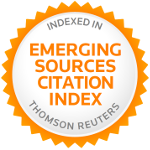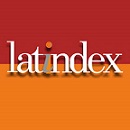An Interpretative Phenomenological Analysis of Challenges Faced by the University Teachers in Pakistan Amid Covid-19
DOI:
https://doi.org/10.46661/ijeri.5256Keywords:
Online learning, Covid-19, Challenges, IPAAbstract
Purpose- This study aimed to analyse the challenges faced by the university teachers during the transition towards purely online-based classes due to Covid-19 outbreak in Pakistan.
Design/ methodology- A qualitative research design was used by employing an interpretative phenomenological analysis approach to capture the experience of university teachers. Interviews were conducted with the participants selected through snowball sampling technique.
Findings- The findings showed that the university teachers in Pakistan had to cope up with many challenges. The specific factors such as infrastructural problems, student’s behavioural issues and difficulties in the assessment of student’s performance indicate that physical classrooms are a more effective mode of learning than the online mode of learning.
Originality/ value- This is among the first studies in addressing the online learning challenges faced by university teachers in Pakistan during Covid-19 outbreak.
Downloads
References
Abdullah, N. A., & Mirza, M. S. (2020). Evaluating Pre-Service Teaching Practice for Online and Distance Education Students in Pakistan: Evaluation of Teaching Practice. The International Review of Research in Open and Distributed Learning, 21(2), 81-97.
Akram, M., Anjum, F., & Batool, Z. (2020). Covid-19: A Reason behind Digital Education in Pakistan. Mediterranean Journal of Social Sciences, 11(4), 19. https://doi.org/10.36941/mjss-2020-0037
Anwar, M., Khan, A., & Sultan, K., (2020). The Barriers and Challenges Faced by Students in Online Education during Covid-19 Pandemic in Pakistan. GOMAL University Journal of Research, 36(1), 52-62.
Behera, S. K. (2013). E- and m-learning: A comparative study. International Journal on New Trends in Education and Their Implications, 4(3). 65-78.
Burgess, S., & Sievertsen, H. H. (2020). Schools, skills, and learning: The impact of COVID-19 on education. VoxEu. org, 1.
Choi, M., Cristol, D., & Gimbert, B. (2018). Teachers as digital citizens: The influence of individual backgrounds, internet use and psychological characteristics on teachers' levels of digital citizenship. Computers & Education, 121, 143-161.
Creswell, J. W., & Poth, C. N. (2016). Qualitative inquiry and research design: Choosing among five approaches. London: SAGE Publications Ltd.
Dean, S., Payne, S., & Smith, J. (2006). Low back pain: exploring the meaning of exercise management through interpretative phenomenological analysis. In: Finlay L, Ballinger C (eds). Qualitative Research for Allied Health Professionals: Challenging Choices, pp.139-55. Chichester: John Wiley and Sons Ltd.
Eatough, V. & Smith, J. A. (2008). Interpretative phenomenological analysis. In C. Willig, & W. Stainton-Rogers (Ed.). The Sage handbook of qualitative research in psychology, pp. 179-194. Los Angeles: Sage. https://doi.org/10.4135/9781848607927.n11
Gibbs, G.R. (2014). Using software in qualitative analysis. In U. FLick, W. Scott, & K. Metzler (Eds.). The SAGE Handbook of Qualitative Data Analysis, pp. 277- 294. London: SAGE Publications Ltd.
Gillett-Swan, J. (2017). The challenges of online learning: Supporting and engaging the isolated learner. Journal of Learning Design, 10(1), 20-30.
Hashmi, M. U., & Shuja, S. (2020). The Barriers and Challenges Faced by students in Online Education during Covid-19 Pandemic in Pakistan. Gomal University Journal of Research, 36(1), 30–39. Retrieved from: http://www.gujr.com.pk/index.php/GUJR/article/view/1115
Hislop, G. W., & Ellis, H. J. (2004). A study of faculty effort in online teaching. The Internet and higher education, 7(1), 15-31.
Hogan, R. L., & McKnight, M. A. (2007). Exploring burnout among university online instructors: An initial investigation. The Internet and Higher Education, 10(2), 117-124.
Krueger, R.A., (2014). Focus groups: A practical guide for applied research. London: SAGE Publications Ltd.
Li, C., and Irby, B. (2008). An overview of online education: Attractiveness, benefits, challenges, concerns, and recommendations. College Student Journal, 42, 449–458.
McQuiggan, C. A. (2007). The role of faculty development in online teaching’s potential to question teaching beliefs and assumptions. Online Journal of Distance Learning Administration, 10(3), 1-13.
Mezirow, J. (2000). Learning as Transformation: Critical Perspectives on a Theory in Progress. The Jossey-Bass Higher and Adult Education Series. Jossey-Bass Publishers, 350 Sansome Way, San Francisco, CA 94104.
Morris, L. V., & Finnegan, C. L. (2009). University System of Georgia's eCore: Virtual general education. New Directions for Higher Education, 146, 25-34.
Mukhtar, K., Javed, K., Arooj, M., & Sethi, A. (2020). Advantages, Limitations and Recommendations for online learning during COVID-19 pandemic era. Pakistan Journal of Medical Sciences, 36(COVID19-S4), 27-31. https://doi.org/10.12669/pjms.36.covid19-s4.2785
Oomen-Early, J., & Murphy, L. (2009). Self-actualization and e-learning: A qualitative investigation of university faculty's perceived barriers to effective online instruction. International Journal on E-Learning, 8(2), 223-240.
Orlando, J., & Attard, C. (2015). Digital natives come of age: The reality of today’s early career teachers using mobile devices to teach mathematics. Mathematics Education Research Journal, 28, 107–121. doi:10.1007/s13394-015-0159-6
Salifu, M., and Todd, R. (2020). Ghana's Teacher Education System and Responding to COVID-19. Retrieved from: https://www.ttel.org/news-view/ghanas-teacher-education-system-and-respondingto-covid-19
Smith, J. A., & Osborn, M. (2008). Interpretative phenomenological analysis, in J.A. Smith (Ed). Qualitative Psychology: A practical guide to research Methods (2nd edn). London: SAGE Publications Ltd.
Smith, J. A., Jarman, M., & Osborn, M. (1999). Doing interpretative phenomenological analysis. Qualitative health psychology: Theories and methods, 218-240.
Syverson, M. A., & Slatin, J. (2010). Evaluating learning in virtual environment. Retrieved from: http://www.learningrecord.org/caeti.htm
Downloads
Published
How to Cite
Issue
Section
License
Copyright (c) 2020 Fareyha Said, Iffat Ali, Tariq Javed

This work is licensed under a Creative Commons Attribution-NonCommercial-NoDerivatives 4.0 International License.









